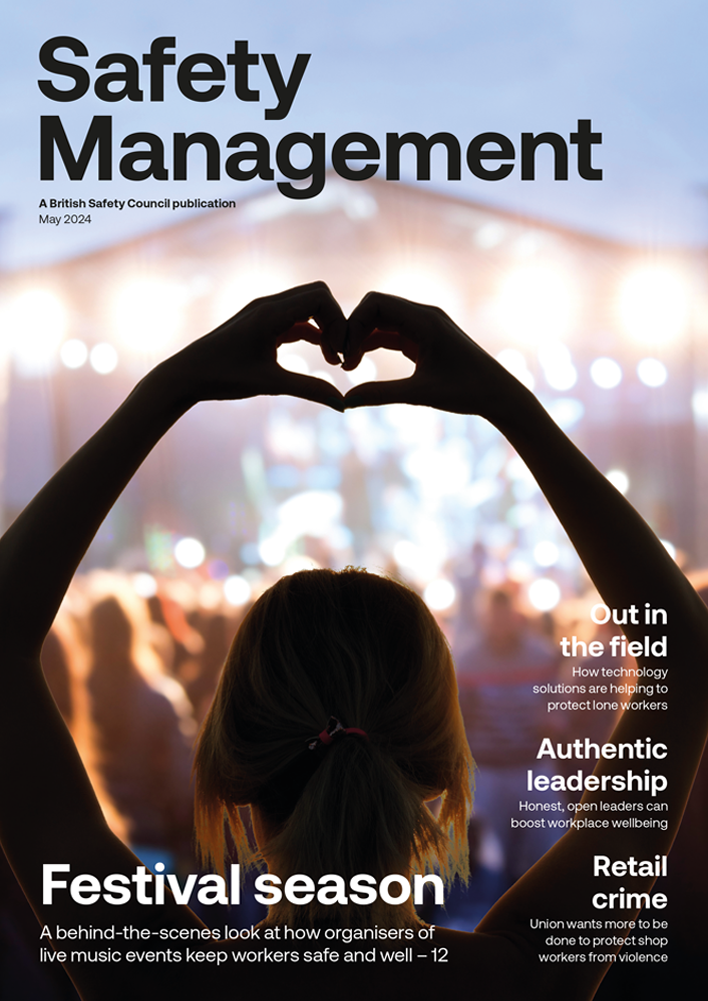As more commuters are encouraged to walk or cycle, and many workers, such as those in teaching, training or childcare shift to outdoor spaces, protection from UV exposure has never been more important.
Features
Stay safe in the sun
Every year in Britain, 1,700 people are diagnosed with skin cancer as a result of occupational sun exposure.
Despite growing awareness of the risks, a study conducted by SC Johnson Professional found that 76 per cent of UK health and safety professionals did not know that one death and five new cases of skin cancer per week in Britain could be attributed to occupational UV exposure.
Our findings showed one in three respondents stated that their organisation did not provide any UV protection to outdoor workers. Lack of provision may be because 40 per cent of these professionals claimed that employees provided their own UV protection.
 Five new cases of skin cancer per week in Britain can be attributed to occupational UV exposure.
Five new cases of skin cancer per week in Britain can be attributed to occupational UV exposure.
This result was despite the Health and Safety at Work Act, which states that every employer has a legal duty to safeguard, as far as is reasonably practical, the health of their employees.
Despite this, in the education sector, for example, less than one in three of employers provided UV protection at all times, and 62 per cent did not provide staff training on best practice.
Further to this, when asked why they felt that a large number of employees did not use UV protection, it was concerning that 30 per cent of respondents said that it was due to a general belief that UV protection at work in the UK is unnecessary.
Last year, it was found that only one in four outdoor worker respondents used protective sun cream while at work, citing it as too much effort. In contrast to this, 72 per cent of respondents claimed that they would use protective sun cream while on holiday.
In terms of training, health and safety professionals recognised the gap in employees’ knowledge yet felt unequipped to address it.
One in two organisations surveyed carried out no UV awareness training, and just 37 per cent believed they themselves had had the correct training to equip them to implement UV protection programmes.
 Hat and neck protection is one of the five things to remember to stay sun safe
Hat and neck protection is one of the five things to remember to stay sun safe
Of those health and safety professionals with a majority of employees working outdoors, one in three did not have enough information to brief workers on the dangers of UV exposure and 41 per cent stated that they wanted clearer regulatory requirements to help them with this.
SC Johnson Professional recommends that training should include a range of resources, such as Toolbox Talks and videos which can illustrate case studies and facts. Those who work outdoors (including those who have newly shifted to outdoor settings), should familiarise themselves with the ‘5 S approach’:
- SLIP on sun protective clothing
- SLOP on sun cream
- SLAP on a hat and neck protection
- SLIDE on some sunglasses
- SHADE from sun where possible.
Close monitoring of the UK UV index should be encouraged too – if the level exceeds three, the sun is strong enough to damage some skin types.
Alan Murray, chief executive officer at the British Safety Industry Federation, commented: “The research carried out by SC Johnson Professional clearly shows that more awareness is needed when it comes to UV protection at work here in the UK – both for health and safety professionals and people that work outside. Employers have a duty of care to provide UV protection to their workforce.”
SC Johnson Professional products and training here
FEATURES

Making a drama out of conflict training
By Nicole Vazquez, Worthwhile Training on 02 May 2024
Conflict management training can give workers the skills and confidence to defuse or manage aggressive behaviour from customers, service users and the public, but it needs to be relevant, realistic and appropriate for the individual’s level of experience and capabilities.

Backstage pass: how do festival organisers keep staff and visitors safe?
By Kerry Reals on 29 April 2024
As festivalgoers prepare to pull on their wellies, dig out their sunhats and dust off their tents ahead of another summer of live outdoor events, Safety Management looks behind the scenes at how festival organisers keep the armies of workers tasked with setting everything up safe and well.

AI: a powerful new tool for managing safety risks
By Robert Leech, EcoOnline on 29 April 2024
AI-driven technology is revolutionising the management of occupational safety and health, making it easier to spot hazards, predict unsafe behaviours and take preventative action to protect workers.



